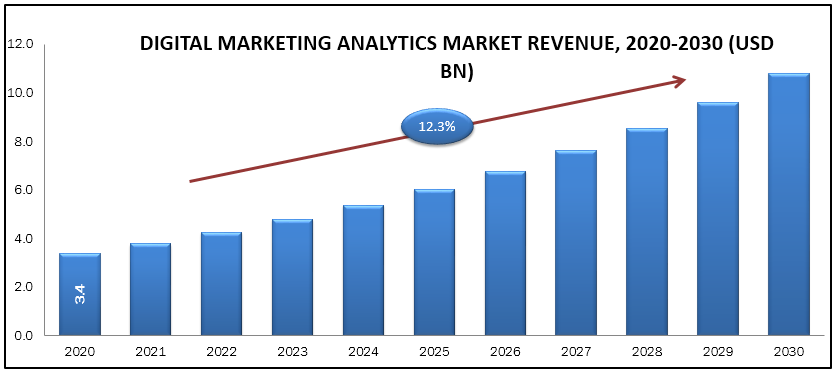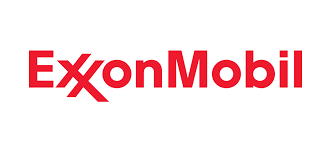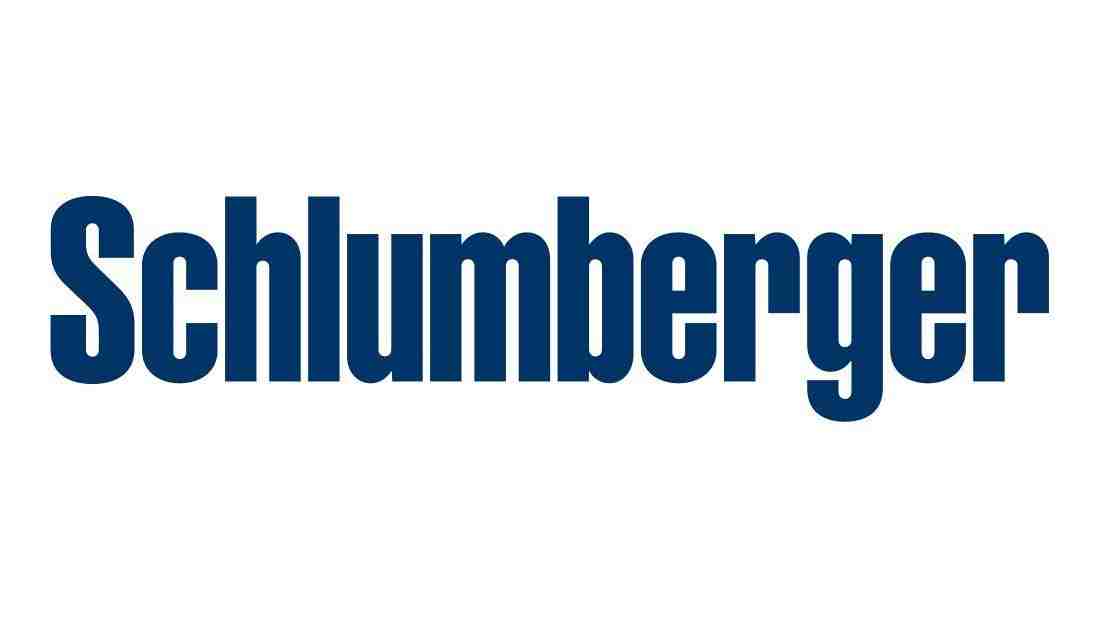Digital Marketing Analytics Market size will grow from USD 3.4 Billion in 2020 to USD 10.8 billion by 2030, and the market will propagate at an estimated CAGR of 12.30%. Digital marketing analytics is the platform used by enterprises to understand the importance and improvement of digital channel. It includes advertising campaigns, user experience, and customer behavior. It is useful for understanding customer expectations from digital channel and boost customer satisfaction. Digital marketing helps to collect the data of the enterprise business through online channels. The analytical tools are useful for variety of reasons such as real time data review, information provision on traffic sources, and supply keyword information which is used in marketing plans. Cloud based analytical tools are more popular as these are the web based applications hence there is no any requirement for software or hardware installation. Also with the introduction of advanced visualization techniques and comprehensive dashboards it becomes more accessible, easy to operate, and understandable. The major driving factors for the growth of digital marketing analytics market are easy deployment and low cost of installation. Also advanced analytics platforms provide valuable methods for improving ad targeting and personalization. Lack of awareness of digital marketing analytics software, lack of data integrity and cross platforms hampers the digital marketing analytics market growth. Technological improvements in digital marketing analytical tools for monitoring individual departments, multiple websites using dashboards and overcoming security concerns will create opportunities for digital marketing analytics market in upcoming years. Difficulties in data analysis and gap in data due to lack of governance and transparency in data sourcing and analysis are the major challenges faced by digital marketing analytics market.
Market Segmentation:
One the basis of deployment the digital marketing analytics market is segmented into on-premises and cloud based. By applications the market is classified as digital enterprise analytics and multi-channel analytics. On the basis of end users it is divided into small &medium scale enterprises and large scale enterprises. By sectors the market is segmented as retail, manufacturing, automotive, and government. By region the digital marketing analytics market is categorized into North America, Europe, Asia Pacific, and RoW.
Geographic Analysis:
North America holds the largest digital marketing analytics market share due to higher adoption of predictive analytics solution by small & medium scale enterprises. Asia Pacific also shows significant growth owing to adoption of different platforms which are useful for data storage and visualization. In Europe, the Digital marketing analytics market is growing with rapid rate as major companies and brands finding larger target audience to promote products and services online.
Competitive Scenario:
Some of the key players in digital marketing analytics industry are Performics, Adobe Experience Cloud, IBM Corporation, Oracle Corporation, Microsoft Corporation, SAP SE, HubSoft Inc., Marketo Inc., and Salesforce Marketing Cloud.
Digital Marketing Analytics Market Report Scope
| Report Attribute | Details |
| Analysis Period | 2020–2030 |
| Base Year | 2021 |
| Forecast Period | 2022–2030 |
| Market Size Estimation | Billion (USD) |
| Growth Rate (CAGR%) | 12.3 % |
|
| By Deployment (On-Premises and Cloud Based), By Applications (Digital Enterprise Analytics and Multi-Channel Analytics), By End Users (Small & Medium Scale Enterprises and Large Scale Enterprises), By Sectors (Retail, Government, Manufacturing, and Automotive) |
| Geographical Segmentation | North America (U.S., Canada, Mexico) Europe (UK, Germany, Italy, France, Rest of Europe), Asia-Pacific (China, Japan, India, Australia, Rest of APAC), South America (Brazil, Argentina, Rest of SA), MEA (UAE, Saudi Arabia, South Africa) |
| Key Companies Profiled | Performics, Adobe Experience Cloud, IBM Corporation, Oracle Corporation, Microsoft Corporation, SAP SE, HubSoft Inc., Marketo Inc., and Salesforce Marketing Cloud. |







